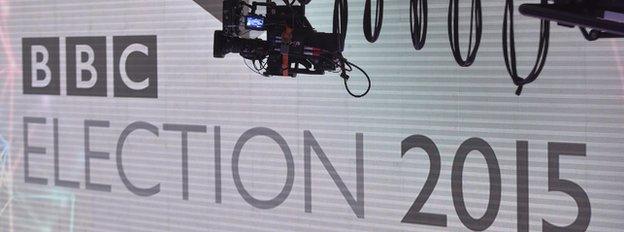Election 2015: The result no-one saw coming
- Published
No pollster, no pundit, no political leader saw it coming - not even David Cameron himself.
Governing parties don't gain seats. Parties that have implemented painful cuts and are promising more certainly don't. Until that is the Conservative Party did - achieving what had seemed to be Mission Impossible - a Tory majority.
Until that is David Cameron's personal triumph which triggered the near simultaneous resignation of his three principal opponents - Messrs Miliband, Clegg and Farage.
They did so in part because they helped to crush their partners in coalition these last five years - reducing the Liberal Democrat parliamentary party to a size when it can fit into two London taxis and still have two seats to spare.
In part because the extraordinary tidal wave of support for the SNP swept dozens of once safe Labour seats away.
In part because Nigel Farage persuaded millions to vote for him but secured just one seat - not, though, the one he was standing in.
But - and this is critical - because Labour performed worse overall than it had under Gordon Brown in the immediate aftermath of the worst financial crisis of modern times.
The result - the men who thought that today or sometime soon they'd be running this country's economic and foreign policies have now joined the unemployment register.
Find your constituency's result
Mapping Scotland's dramatic change
This, then, was David Cameron's day. But it was one other leader's too - the woman who didn't even run in this election but dominated it - Scotland's First Minister Nicola Sturgeon
All that remains to be seen is how - whether - these two can live together or whether he becomes the last ever PM of a United Kingdom and she the first ever leader of an independent Scotland.

Analysis by BBC experts

Norman Smith on David Cameron's colossal achievement
Jonny Dymond on how the Conservatives won their historic victory
Jonny Dymond on where next for Labour
Robert Peston on market reaction to the result
James Cook on the implications for the United Kingdom
Katya Adler on the reaction from Europe
David Cowling on how the pollsters got it so wrong
Newsnight reporters and producers' rolling election analysis
